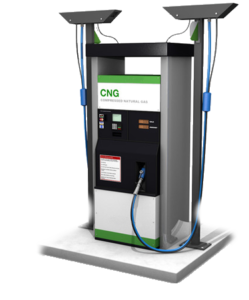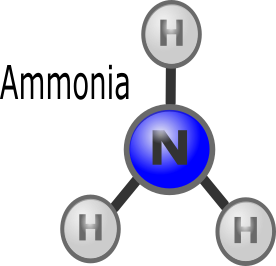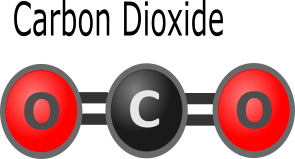Gasification Unlocks the Value of Biomass and Waste
Frontline’s gasification and gas upgrading technologies convert low-value biomass and waste into high-value products. Frontline takes what appears to be waste that is usually burned as wood chips, put in landfills as municipal solid waste, or plowed into the soil as crop residue and unlocks their potential. We provide the opportunity to not only turn waste into value at high efficiency and yield but to reduce pollution as well.
Renewable Natural Gas
 Other than the usual uses for natural gas, Frontline’s natural gas can be used as truck fuel to replace diesel. Along with being cheaper and more efficient, Frontline’s renewable natural gas generally emits 96% less greenhouse gases than diesel. When compared to diesel on specific pollutants, renewable natural gas has:
Other than the usual uses for natural gas, Frontline’s natural gas can be used as truck fuel to replace diesel. Along with being cheaper and more efficient, Frontline’s renewable natural gas generally emits 96% less greenhouse gases than diesel. When compared to diesel on specific pollutants, renewable natural gas has:

New ultra-low NOx natural gas vehicles can actually have a cleaner overall emissions profile than electric vehicles. This is because electric vehicles charge with power from the grid, which is not all clean energy.

Renewable Hydrogen
 Frontline’s process can also produce renewable hydrogen. This hydrogen can be used in industrial processes and fueling vehicles. For instance, automotive companies like Nikola, Toyota, and Nissan are already working to make hydrogen fuel cell vehicles a reality. Renewable hydrogen has a carbon intensity as low as -150gCO2e/MJ in new fuel-cell powered vehicles.
Frontline’s process can also produce renewable hydrogen. This hydrogen can be used in industrial processes and fueling vehicles. For instance, automotive companies like Nikola, Toyota, and Nissan are already working to make hydrogen fuel cell vehicles a reality. Renewable hydrogen has a carbon intensity as low as -150gCO2e/MJ in new fuel-cell powered vehicles.

A hydrogen car by Toyota.
Renewable Chemicals
 Methanol: Frontline’s technology can also produce methanol. Methanol is often used to form other chemicals like acetic acid, formaldehyde, and dimethyl ether (see below). Methanol also can be used as an ingredient in biodiesel which can be a cleaner replacement for petroleum diesel. It can also be mixed to make new blends of gasoline.
Methanol: Frontline’s technology can also produce methanol. Methanol is often used to form other chemicals like acetic acid, formaldehyde, and dimethyl ether (see below). Methanol also can be used as an ingredient in biodiesel which can be a cleaner replacement for petroleum diesel. It can also be mixed to make new blends of gasoline.
 Dimethyl Ether (DME): Just like methanol, DME produced through gasification can be used as biofuel. DME can blend with propane, replace propane fuel, or replace diesel. According to the Methanol Institute, DME’s qualities cause it to have higher efficiency, better mileage, and cleaner emissions than diesel.
Dimethyl Ether (DME): Just like methanol, DME produced through gasification can be used as biofuel. DME can blend with propane, replace propane fuel, or replace diesel. According to the Methanol Institute, DME’s qualities cause it to have higher efficiency, better mileage, and cleaner emissions than diesel.
 Ammonia: Frontline’s technologies can also produce ammonia. Ammonia is commonly used as fertilizer or as a fertilizer ingredient to provide much-needed nitrogen for plant growth. Many household cleaning products also use ammonia to clean glass, porcelain, and other surfaces. Finally, ammonia has industrial applications in air conditioning, pharmaceuticals, and other industries.
Ammonia: Frontline’s technologies can also produce ammonia. Ammonia is commonly used as fertilizer or as a fertilizer ingredient to provide much-needed nitrogen for plant growth. Many household cleaning products also use ammonia to clean glass, porcelain, and other surfaces. Finally, ammonia has industrial applications in air conditioning, pharmaceuticals, and other industries.

Biochar
Biochar is a coproduct of gasification as well. Biochar has many potential uses, including as:
- a fertilizer, a compost ingredient, or a soil amendment – biochar has been shown to improve soil by boosting water retention and slowing nutrient release.
- a filtration component – biochar can be used in some filtration systems due to its high absorption capacity.
- a renewable fuel – biochar can be combusted to provide heat for processes such as cement production.
Sequestered Carbon Dioxide
 Gasification also allows CO2 to be removed from our products before commercial use. An EPA Class VI Sequestration Well can pump CO2 deep underground meaning the gas cannot reach the atmosphere. Carbon sequestration results in a dramatic reduction of CO2 emissions in any project Frontline engineers.
Gasification also allows CO2 to be removed from our products before commercial use. An EPA Class VI Sequestration Well can pump CO2 deep underground meaning the gas cannot reach the atmosphere. Carbon sequestration results in a dramatic reduction of CO2 emissions in any project Frontline engineers.
